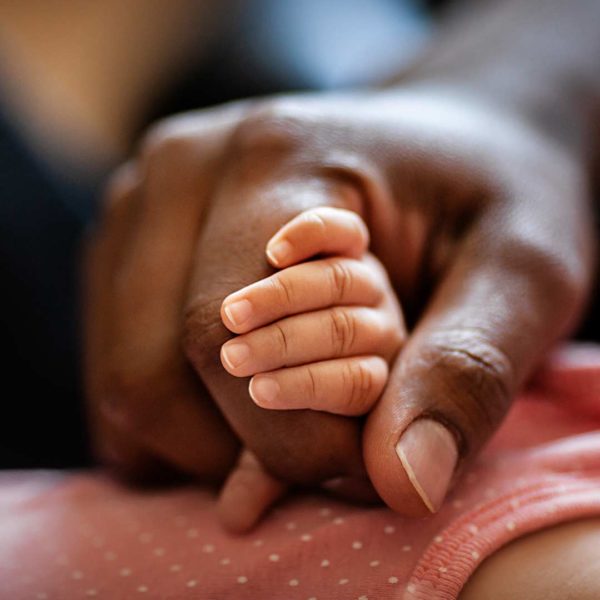Sleep Regressions — What Are They, and When Will They End?
Your baby or toddler was sleeping well — napping during the day and going to bed smoothly at night. Now you can’t get her to sleep no matter what you try. If you and your baby are suddenly very short on sleep — and very cranky about it — you may be facing one of the many sleep regressions.
How do I know my baby is having a sleep regression?
Sleep regressions are not hard to spot. You may see the following behaviors:
- Increased appetite and frequent feeding
- New frequent waking in the night
- Taking short naps or refusing to sleep during the day altogether
- Increased fussiness and tears
- Clinginess to mom or dad and reluctance to be with different or new people
Less sleep for your baby obviously means less sleep for you, too. At a time when her demands on you for comfort, nursing or eating, and attention during the day are high, these sleep interruptions can equate to some tough moments of parenting.
Why Do Sleep Regressions Happen?
According to pediatrician and child development expert, Dr. T. Brazelton, sleep regressions are a normal phase of disorganization in a baby’s body and brain that happen right before, or in the midst of exciting developmental growth. You can think of it this way: learning how to sit up or stand or to see an object and know its name are such hard tasks that your baby’s body and brain can’t stay on top of their other jobs. Sleeping, eating, and even their mood kind of go off the rails! When their new skill becomes more familiar, your baby will be able to keep all of it together better and sleep will settle down again.
How Long Will This Last?
Sleep regressions usually last between 2-6 weeks. The good news is that most babies don’t experience every sleep regression between birth and 3 years old. Some developmental milestones are more exciting and more difficult than others for different babies.
What are the Typical Ages when Regressions Occur?
Sleep regressions don’t happen at exact ages but they do happen when babies start to change in some important ways developmentally. These developmental ‘leaps’ — as Wonder Weeks calls them — typically happen around specific ages. However, your child may experience them at different times than other babies their age.
4 Month Sleep Regression
While not all babies will experience all the sleep regressions, most families find themselves struggling with frequent night wakings between their baby’s 4th and 5th months. In this developmental window your baby is starting to see themselves as separate from others — even you! This is also when their sleep patterns begin to change and their deep and light sleep cycles become more distinct. Without going into too much sleep science, your baby is likely sleeping in 45-50 minute cycles. Even babies who were sleeping well can start to struggle at the transition from light to deep or deep to light sleep. What does that mean? Frequent night wakings are really common during this sleep regression and you may find yourself holding, rocking, and shushing your baby often to calm them down.
Experiencing your first real regressions?
Read: 4 Month Sleep Regression – Tips To Soothe Your Baby
7 Month Sleep Regression
The sleep regression that occurs between 6 and 7 months old is another one most babies experience in some way or another. Babies are making exciting developmental strides that you can see during this phase. Many 6-7 month-olds are learning to sit up on their own and some may even begin creeping or crawling along on their belly. Their eating habits are changing as you begin to explore more solid foods and they start using their pincer grasp to pick food up and feed themselves.
In the middle of the 7 month sleep regression?
Read: The 7 Month Sleep Regression — What To Expect

9 Month Sleep Regression
Just like at 6-7 months, the 8 to 9 month sleep regression is due to a lot of brain development. Your baby may be starting to crawl, scoot, and even pull themselves up to standing. Many babies at this age struggle at nap time and even in the night as they practice standing up in their crib without knowing how to get down. Your baby is also beginning to put things into categories, which is the start of learning language. For example, they begin to know that something is a ball no matter what color or size it is. All of this is exciting and can keep even the calmest, mellowest babies up at night and during naptime.
Need to know more about the 9 month regression?
Read: The 9 Month Sleep Regression — When Your Baby Stops Sleeping
12 Month Sleep Regression
Babies around one year are adding even more skills to their tool box. The language that was just conceptual or just noise a few months ago is becoming recognizable to adults around them. They may be able to say ‘mama’ and ‘dada’ — though not always for the correct person — and even say one or two additional words. They’ll soon be able to walk and are practicing by pulling themselves up on EVERYTHING and even taking a few steps holding your hand or a piece of furniture. What does all of this have to do with their sleep? Your baby may be waking early from their naps or even refusing them altogether. Babies that were sleeping well through the night may be waking frequently again.
15 Month Sleep Regression
At 15 months your toddler may be in the midst of two major changes — walking independently and transitioning to one nap per day. Babies this age seem to be on the move CONSTANTLY as they practice walking (and falling) everywhere! Some are so focused on practicing this exciting new skill they may have trouble quieting down to sleep. The transition from two naps per day to one can also be bumpy. Less daytime sleep can leave your baby overtired at bedtime and harder to get to bed smoothly. Being overtired can even contribute to more night waking.
Is your young toddler waking up AGAIN?
Read: The 15 Month Sleep Regression — What to Expect
18 Month Sleep Regression
Your toddler dropped from two naps to one and you thought you were in the clear. At 18 months you may find yourself waking, from out of nowhere, to a shrieking baby in the night. Perhaps you’re even fighting to get that one nap during the day, AGAIN! Children begin to really expand their language skills around this age and are becoming more independent with their play, movement, and eating. This increased independence can also equal an increased will, so you may notice your toddler experimenting with tantrums during the day and at sleep time.
Is the 18-month sleep regression on your mind?
Read: 18 Month Sleep Regression: How To Get Your Toddler Back To Sleep

2 Year Sleep Regression
Your toddler’s language is now getting more sophisticated and he’s experimenting with new words and phrases including “No!” During this period of development he’s also learning about consequences and cause and effect. For example, what happens when Daddy asks me to sit down at the table and I yell, “No”? Toddlers at this age understand that they have a choice about things and many parents find their child begins experimenting with the power of this choice at bedtime and at naps.
Maybe “terrible twos” have a sleep regression to blame!
Read: The 2-Year Sleep Regression – How to Get Your Child Back to Sleep
3 Year Sleep Regression
As children leave the toddler phase, some may experience a final sleep regression around three. As your 3-year-old’s world gets bigger, fears and phobias can crop up and be especially upsetting at night. Bad dreams, requests to check the closet and insisting that someone stay with them at bedtime are common at this age. Three is also the age when many families embark on potty training. The logistics of dropping diapers at night and the developmental leap it is for children to be aware of their need to use the bathroom can disrupt their sleep.
Three and…up all night?
Read: The 3 year Sleep Regression — What to Expect From Your Preschooler
Remember: It’s Just a Phase!
No matter what ages your baby or toddler experiences their sleep regressions, it takes a lot of work from you to get through it smoothly. You will need to support their body and brain while they discover whatever new skill or understanding of themselves and their world is keeping them awake. Read about the sleep regression for your child’s age to learn more strategies for surviving sleep regressions. And remember that this phase is temporary and a normal part of your baby growing up into a bigger, bolder, and older child!
Want to read more about sleep regressions?
Read: Sleep Regression: When, Why, and How to Solve It!







